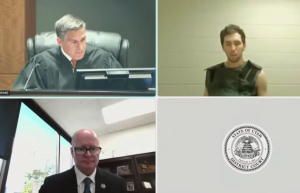September 17 marks the signing of the U.S. Constitution and the national celebration of a living document that outlines the destiny of every U.S. citizen, IVN reported on Wednesday.
Every American should be aware of the provisions stated in the Constitution addressing individual rights and freedoms. However, not everybody knows the complications, drama and attitudes that went into the creation of the document.
Here are 10 not widely-known facts regarding the Constitution:
1. The U.S. Constitution is the most condensed national constitution in the world at 4,400 words.
2. The word 'democracy' is not used at all in the U.S. Constitution.
3. Out of the 11,000 amendments to the Constitution that have been proposed, only 27 have been ratified.
4. Benjamin Franklin, age 81, was the oldest signer of the Constitution. He died at age 84.
5. George Washington initially proposed a "Day of Thanks," or Thanksgiving Day, as a way to memorialize the Constitution.
6. While drafting, the Constitution included a clause that would outlaw slavery 20 years after its implementation.
7. Only 12 of the 13 colonies were present during the writing of the Constitution. Rhode Island did not want to participate, and was the last to sign on May 29, 1790.
8. Independence Hall, where the Constitution was signed, is also where the Declaration of Independence and Articles of Confederation were signed a number of years earlier.
9. The iconic first words of the Constitution, "We the people of the United States," originally listed each state individually from north to south, instead of "the United States."
10. Governor Morris, a delegate from Pennsylvania, is usually credited as the "Penman of the Constitution." Actually, a man named Jacob Shallus - assistant clerk of the Pennsylvania State Assembly - wrote most of the document.
Despite fears of wrongdoing and inequity of representation, the U.S. Constitution was fully ratified on May 29, 1790. The founding fathers acted as all statesmen and politicians are expected to; they compromised for the good of the people. Now, on September 17, above all else, it remains important to celebrate that document by which we create our individual destinies.
© 2025 HNGN, All rights reserved. Do not reproduce without permission.








